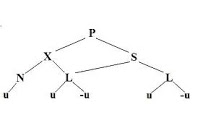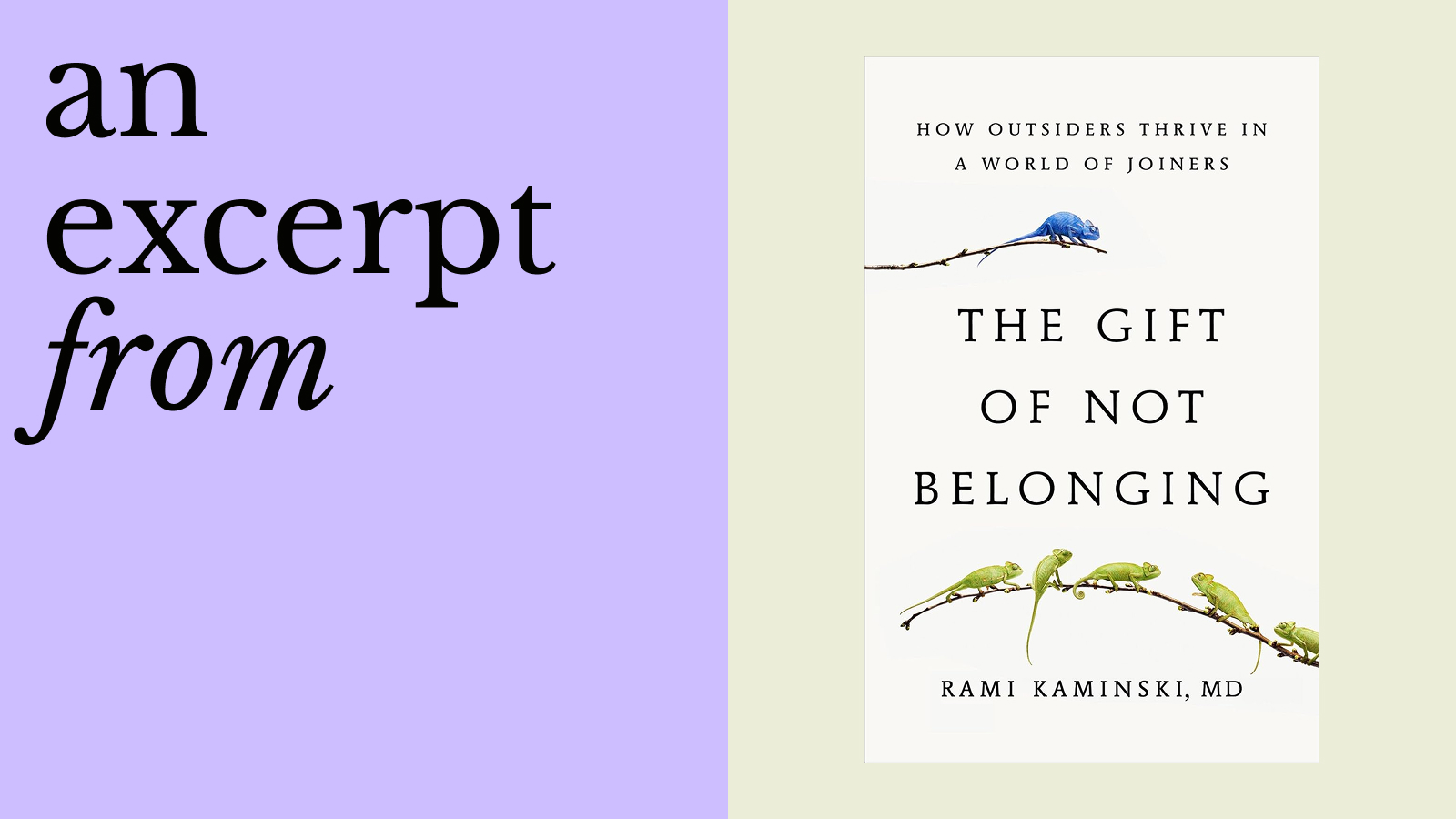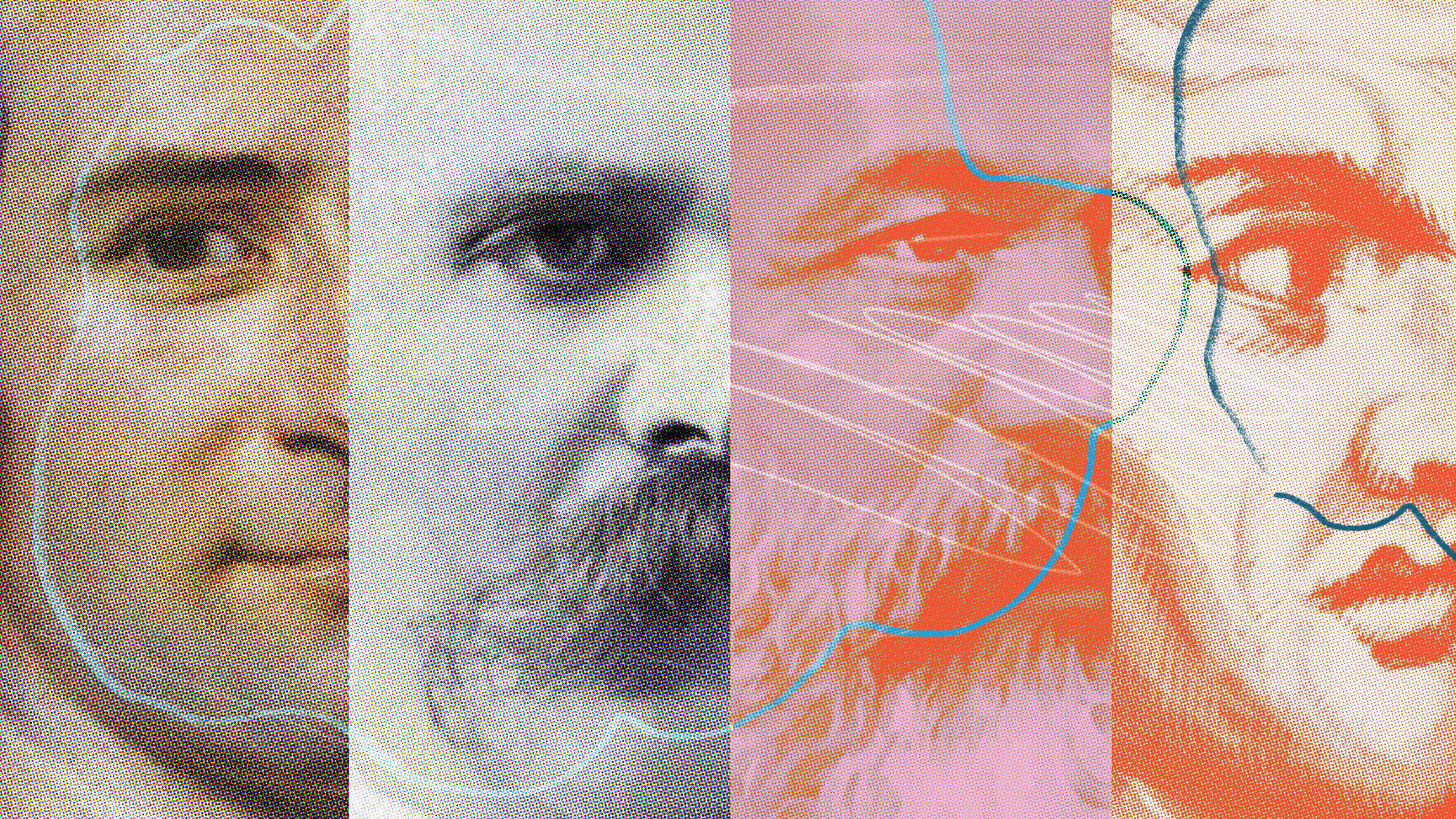Conservatism is Unnatural
People look back on the societies of the past with a type of amused superiority. They wonder how we could have ever been so silly. Without even a consideration of what it means to live in a present as a product of its past, it’s as if they have no doubt of their perfection. Despite this commonality it remains difficult to affect change in this flesh bound paradigm. To have opinions different that the norm is to be branded as having some form of deficiency. People who currently look at the human condition with even minimal awareness can see it as lacking. Yet we do or are capable of nothing to facilitate any change. Why? Is it that we hide our alternate views from others for fear of persecution? Is it that the change that is required is too great to be formulated, packaged and distributed, except perhaps through the acceptance of a religion or other collective movement?
Of course, you can’t start an alternate religion or political party either. Politicians who stir the pot don’t get voted in and if they do, they’ll shortly be killed by professionals just doing their job. Start a religion and you’re immediately reduced to a loony, likely to be killed by anyone and perhaps rightly so. You are, regardless, no less dead either way. So the most common way to affect change is to find how to change yourself and then share the knowledge with others, leading by example. The widespread individual shift becomes the social shift. (Enter the Author, Preacher, Teacher, Artist.)
If ideas and concepts are understood in networks of relations, can an ideal series of correlations be achieved? Attempts to do so by outside influence are the domain of social engineering, whether or not those influences are clandestine.
New paradigms in our understanding of the evolution of everything have led to the development of new concepts and the redefining of old ones. Continuously and with an increasing rate of intention there have been large scale shifts in “what people know.” In, for example: psychology, technology, politic, economy, ecology, bio, chem, geo, socio, this list includes nearly every subject. Unfortunately, the surge of “society as an organism” thinking lends itself to find controls, whether or not it seeks them. We can then use these controls for our own detriment or gain. Interesting that by also studying other societal systems, like that of insects, we can see that there are illogical steps taken to cause systems of a counterproductive nature to fail, or force change. In other words, if an ant colony is getting too big it will sacrifice a part of itself for the good of the whole. That is not the nature of our conundrum for we, lest we forget, are the species that doesn’t always work in its better interests. We can, at the least, gain an ability to recognize when we’re being handed our hat. (Anti-Social Engineering…)
In this chapter we will further diverge from the new-age or psychological efforts of those who lay claim to the pathway of Authentic Self. None of them removing their own blinders to look at sociology and history with a reasonable philosophical eye. We will begin to understand the influence of Social Norms as well as their difference from eXperiential Norms. (The S and the X are underlined to remind you that these are the terms under Paradigm in the philosophy generator.)
In the generator, P is split into either X or S. This means that paradigms can be only from Social Norms or eXperiential norms. They have to be one or the other, they cannot be both. In symbolic logic the word “or” is expressed as a lower case “v” so we now can symbolize: P = (X v S) If it’s paradigm it’s either experiential or social. This is an idea old as Aristotle, we’re just redefining terms to examine a current phenomenon. Think of it as “either I eXperienced it myself or somebody told me so.” (There is little room for arguing that “being told so” is, in itself, an experience. It is, but without the direct stimulation of the actual experience, you are without proof. We will cover this paradox in greater detail soon enough.)
Change always waits until the last minute. Whatever shift is required will only occur when it becomes a necessity. In a natural system the preceding (repeated) statement is true. This means we can deduce that change is a necessity. If there is human interference then change can be created, destroyed, controlled, etc. It was this realization that caused the “first” Enlightenment at the last half of the eighteenth century. French philosophers, unhappy under what they considered the tyranny of their own leaders, “woke up” and started asking questions. “Why does the church have to be linked to the state?” “Why do our young men have to join the campaign or be labeled traitors?” “Why does one who has worked hard to gain stature fail and those who are merely born into it succeed?” “How did we get to this point?” To put it bluntly, the Enlightenment came from the realization of philosophers that “common” people didn’t have to be the way they were because anyone said so, yet they were. It wasn’t just the French, there was a vast uncorking of new ideas all over Europe, into Russia and carried over into the “New Land.” Stemming from the growing ease of travel, the printing press, the chemical, medical and mechanical advances in industry and other conveniences, a new society of powerful people was created, the individual, the “person.” Modern philosophy was born from realizing the quick, rampant influence of unavoidable change and shortly thereafter, secret philosophy came along too. For if the masses decide they are going to be aware, if they are going to literally revolt in the streets to get what they want, then control seekers must find a subversive way to tell the people what they want. And so now, in an American court, you put your hand on the Bible to pledge your honesty oath and church based movements elect presidents. We are, to this day, still trying to rid ourselves of this veil.
During the Enlightenment questions were posed of the implications of mixing church and state in ways that go beyond allegiances in courtrooms and politic in sermons. There was the realization that it was morality legislated and categorization by belief. I like to imagine it this way, for thousands of years, peoples all over our lovely little planet have been experimenting with types of societies. After all that time, a system began to be duplicated, by desire or by force, that was able to have control of it’s people while giving them the opportunity to live happy, healthy, productive lives. The system was, in a word, “Money.” ‘You use your skills to earn your living’ rather than, ‘you live off the flora and fauna.’ This system had been used for quite a while before the enlightenment turned it into the physical manifestation of the middle class. Controls move from the church to state. Money is worshiped. The lines blur.
The difference between the old Enlightenment and the new is that we now are waking up from our subconscious servitude (social engineering) whereas during the Industrial Revolution we were waking up from our conscious servitude (serfdom.) We have now “caught up” to Philosophers of our past. Therefore, back then we learned that we were real individuals, that if any human had rights then we all them. Now we wake up to learn that we’re being controlled with ideas, our rights aren’t really ours and we are only allowed to exercise them within a fairly rigid framework , society.
The powers that governed over this transformation sought out controls that could be accepted by the masses. They hid them in the morals of church, law, and the accoutre that complicates the logic of trying to correlate them. They set into church and state rules that made it seem we wanted to follow them, because it seemed right, even though we’re not sure why. For eg: In most countries it is against the law and it is morally wrong to kill a person. (Of course I mean a person who doesn’t “deserve” it, both religion and governments have people who kill in their names.) Just generally, Murder is Illegal and Wrong. I think a lot of you will agree with that, but why? Because it ends the life of someone who could have done good, been loved and will be missed. No! Stop it, don’t think that way, you’re categorizing him. By doing so you induce that there could be a circumstance where murder could be right if he couldn’t have done Good, been Loved and no one M2issed him. You’re completely missing the point as well as being illogical. (The M has the 2 after it because we have two terms symbolized by M.)
[ M = ( W . I ) ] = [ P = ( L . M2 . G ) ] [ M = ~( W . I ) ] = [ P = ~(L . M2 . G ) ] ———————————————-
M = P
This rather complicated looking syllogism is nothing to be frightened of. The brackets group ideas together. You remember, the = creates the conditional statement “if… then.” The dot . simply means “and.” The squiggly minus sign, called a tilde, as you would guess, attaches negation. The first statement says, ‘Murder is wrong and illegal if the person is loved, missed and good.’ The second statement says ‘Murder is not wrong and not illegal if the person is not loved, not missed and not good.’ Common sense tells us that this isn’t true, so does the equation. The positives in the first statement, (W and I) as well as ( L, M and G) get cancelled out, like they would in any math solution, by the negation of themselves in the second statement. (~) All that’s left is ‘If it’s murder then it’s a person.’ Which, while being true, (with apologies to all other species and those who love them,) it in no way expresses our point that murder is wrong because the person killed could have done good, been loved and would be missed. Therefore, it is an invalid syllogistic argument. It doesn’t mean we’ve proven ‘murder’ right or wrong. It means that our ‘murder’ paradigm, built on the argument above, is invalid. If indeed this is what we believe, we have no explainable reason for thinking the way we do about murder.
It isn’t about deservedness. “Rights” have been created. You’re judging things by standards that are going on three hundred years old, and they were based on standards that came from two thousand years ago. To say “Yeah, but it’s working so well,” is to deserve a smack upside the head! So I ask you, if the man who was killed was a wife beating child molester would he then deserve to die? Of course not. He could be treated and go on to make amends with all those he hurt, even help others, so inclined, turn their lives around. Who are you, judge, jury and executioner? Yes actually, you are but you’re off the hook because you’ve been made that way. The decisions made in the establishment of the Establishment have decided who you are and what you believe. (Sanctioned killing is okay, murder is abhorrent.) Nature tells us that we can and will kill whatever we want. We know this is true. Consider believing what you’re shown, not necessarily what you’re told. These passages are neither an endorsement of murder nor an admonishment of religion. The statements are made in keeping with the overall theme of my theory that missing or misdiagnosing influence is dangerous.
Is it natural or instinctual to know to allow certain impulses or emotions and suppress others because of a set of predetermined guidelines? If you answer yes, you’re buying into what they’re telling you. If you answer no, you’re denying all the evidence around you and within you. People today allowing and suppressing because of their paradigms. That means that in order to rid us of these binding perceptions we must consider all paradigms, even and especially disturbing ones. The reasons are twofold: Firstly, a healthy, open mind can only gain strength from that which makes it uncomfortable. (More on that later.) But we must also question every paradigm because the foundation of our personal natural instinct could be a fabrication. How are we, as individuals, supposed to know after thirty years, or a lifetime, or after three hundred years, or two thousand years if a particular set of guidelines have steered us well? Despite our ever quickening pace of advancement we are still idiots. What I know compared to what I don’t know could be expressed in the same ratio as my lifetime compared to the eternity before and after it.
To contemplate the ancient concept of self with a being that is truly “not-self” without even the ability to conceptualize having rules put upon you is to perpetuate ignorance and demonstrate the absurdity of modern human existence. To even achieve the question requires a paradigm shift that instantly opens an endless stream of possibilities. Furthermore, paradigms once found, put the mind into the flow of enlightenment. It is this new modern enlightenment that will spread the understanding to the point of beginning to answer difficult questions, and undoubtedly pose new ones. This point is all but completely accepted by contemporary authors, be they ripe with opinion or strictly empirical. Because I have picked on Dr. Phil and Eckhart Tolle for being right for the wrong reasons, let’s pick on some others for being wrong for the right reasons. Dan Dennett is a philosopher and author. So is Andrew Cohen. They are at opposite ends of a spectrum. Dan’s position is summed up nicely by his opening comments at Beyond Belief 2 (an annual conference of scientists concerned with enlightenment.)9 He called it, “The difference between diplomacy and dishonesty.” He said, “Excuse me Sir, but do you realize that your entire life has been constructed around you through a fantasy based belief structure and by passing it on to your children you are exacerbating a dangerous continuation of nonsense.” Andrew Cohen, someone who specifically uses the term, “Authentic Self,” claims to have insight to the ultimate causation. That is, where Dan will not give an inch on his Atheism and his distaste for the idea of faith; Andrew will neither yield his Theism nor his interpretations of God as the “act of creation, itself.” To be fair to Dan Dennett would probably argue that he was referring to religion and not God specifically. To be fair to Andrew Cohen, he could be right. As I’m sure you are growing accustomed to, you and I can’t answer either men. The fact that we recognize our limitation is our reward. There can be no blinders on the open mind. Apparently it’s not enough for the new modern Philosophes to acquaint you with yourself, they want to push into the unknowable and declare the fantastic, most doing so vehemently. Despite the lack of comfort provided by the truly reality-based point of view, the empowerment of understanding validity outweighs the need for faith. Logically, you can no more disprove than prove God.
Faith, however biased, is still welcome with your Assignee’s Prerogative, as it is your own. Have all the faith you want, just know that it’s faith. Be mindful of influence and determine it worthy or dismiss it as irrelevant. Herein also lies the beginning of appreciating the difference between eXperiential Norms and Social Norms.
We’ve examined only one aspect of morality, murder, or more rightfully, killing. There are many more ill defined morals in our modern society from ancient times. Ideas like the sanctity or purity of places, people or objects. Automatic respect or reverence for authority figures is still expected from most human citizenry. Ideas of class, race or kin being of some worth or relevance to anything are all still prevalent. In fact, we use this standard of Fairness, Harm, Ingroup, Authority, Purity as the measuring stick of our sociological or moral makeup.10 It’s important that we understand the categories of this moral scale. This scale has been in development for hundreds of years and those who wish to follow it’s history should also look up David Hume, Lawrence Kohlberg and Elliot Turiel.
Harm/Care
Fairness/Justice
Ingroup/Loyalty
Authority/Respect
Purity/Sanctity
The five categories are the Definition of the Domain of Morality by Elliot Turiel.11 They are referred to as the “Foundations of Morality.” To be most concerned with a particular single branch or group of branches points to your morality. The stronger the assignation of importance to the beginning of the list, the more left leaning, liberal, democratic, etc. you are. You are a two foundation person. The more importance you assign to the latter three the more right leaning, conservative, authoritative, etc. you are. I’m sure we can agree that the utilization of judgement where Fairness and Harm are the standards is much more logical and productive than using the considerations of Ingroup, Authority or Purity. In fact, the latter three paradigms should be almost entirely dismissed, most are antiquated and spent. Ingroup leads to nepotism, racism, classism. How many of us have helped a friend do something illogical? Authority is weighed well by many still, despite murderous cops, self-serving politicians, and abusive priests. Purity doesn’t refer to the wholeness or correctness of something, but it’s deemed worth. Questions of Sanctity are of value. The Dome of the Rock is one of the most traveled to places on the planet. It is a manmade structure where people come to pay homage to a meteorite. Were they able to, the pilgrims could pick up any rock build a temple around it and assign the same purity to it. They can’t because they’ve been instructed that this rock is special and deservedly so. In fairness, this last point is why I say we should all but dismiss Ingroup, Authority and in this case, Purity considerations, for what if I am wrong and someday an irrefutable force proves to me that the rock is ‘special.’ Furthermore, Ingroup facilitates family responsibility and cultural comfort which are not unhealthy. There is also Authority in the Universe as there is Purity, I just haven’t found either yet. I know they exist because their opposites are so prevalent. (I wish to point out, just for clarity, that my singling out of any one religion, God, artifact or geographic location are for illustrative purposes only.)
It seems, therefore, that Nature is left leaning. If considering Ingroup, Authority and Purity is far less important that considering Fairness and Harm, society is in a state of illogical, counterproductive denial. We now begin to just see the tip of the iceberg now, breaking above the water. The monster begins to take shape: Individuals are more to blame than society is more to blame than we. Except that, for the most part, we’re doing what we’re told. If we can accept that Nature’s default is that of an open, flexible, dynamic system, then we should be able to accept that we are working against it if we are not doing the same. It’s a coincidence that as we move from the moral/political left to right under the philosophy generator we get away from paradigms that are eXperiential and into those that are Social.
If we know that we have been socially engineered to be the way we are, then the forces that made us that way, want us that way. So why do they want us to work against nature? Does that mean we have been programmed to fail? Why? What else have they programmed us to do? Who are these people?
These are also the questions of the new enlightenment, but they are not being asked by the spiritualists and the social psychologists. They are being asked by the two philosophers present…
the conversation continues at anti-socialengineering.com




